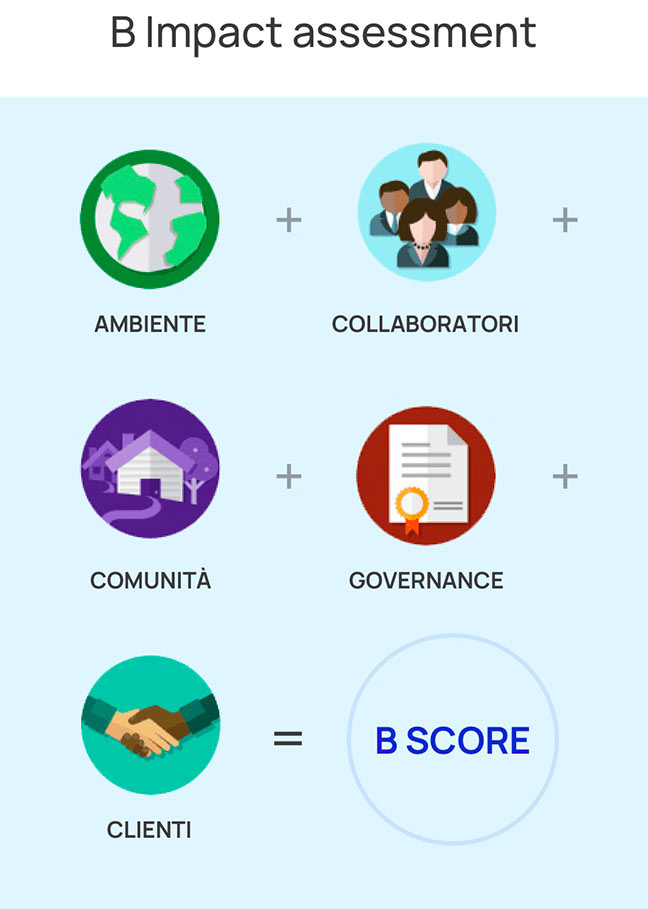The Sella group and sustainability
The Sella Group is driven by the awareness that economic results cannot be separated from a positive impact on the environment and the community. For this reason, it has always given particular attention to sustainability issues and is committed to a path aimed at constantly improving its positive impact on various stakeholders. With the goal of sharing its commitment to ESG matters with all stakeholders, the Group has been drafting the Social Responsibility Report since 2004, the Non-Financial Statement pursuant to Legislative Decree 254/16 since 2017, and starting from 2024, the Sella group draws up the Consolidated Sustainability Statement pursuant to Legislative Decree 125/2024.
The Sella group has defined its strategy and positioning on ESG issues with a long-term vision. Based on these elements, which are an integral part of its strategic plan, it has built a program allowing to translate ambitions into behaviours, products and services further to integrate ESG assessments in business choices. The Sustainability Plan is associated with specific targets that are also mirrored in the remuneration policies.
The Plan has a twofold goal:
- constantly improving its social and environmental performance to regenerate the community and increasingly having a valuable and positive impact on all stakeholders;
- being the promoter of a sustainable economy through its financial intermediation activity, supporting its customers in the transition process to an effective ESG-impact economy.


The Group constantly measures the impact of its environmental, social and governance performance through the B Impact Assessment (BIA) methodology, which analyses five areas: environment, employees, customers, community and governance, assigning a final score between 0 and 200. When this score is above 80, the organisation is known as "regenerative", that is, one that contributes positively towards the Planet.


The result of this self-assessment, which the Group underwent with the support of Nativa, B Lab's Country Partner, also thanks to a series of activities envisaged in a specific multi-year action plan, has grown over time and today the Group is firmly positioned above the threshold of 80 therefore well within the range of "regenerative" organisations.
The Group's strengths that emerged from the assessment relate to governance, people development, product offerings to customers, and support for the real economy.
During 2024, activities continued that further strengthened the Group's score.
The Group's objective is to continue implementing the already outlined activity plan to further increase its impact and constantly improve the BIA result.
The Sella group is aware of its economic and social role in contributing to a more sustainable world, which translates into a daily commitment to constantly improving its impact on its stakeholders. The desire to work to meet people's aspirations, building the sustainable financial ecosystem of the future, guides the Group's actions and choices.
The Group's goal is therefore to become a reference point on the topic of sustainability for those who want to have a positive impact on the environment and communities, distinguishing itself both through its commercial offer and the quality of its relationships and consultancy towards people.

The areas of intervention including both the commitments made in the B Impact Assessment and the activities resulting from the application of the Group's ambitions on ESG issues may be ascribed to the following main areas of work:
Carbon footprint
Refining and expanding the calculation of CO2 emissions, defining strategies for further mitigation of environmental impact and for offsetting residual emissions to zero the impact of their carbon dioxide emissions.
An important goal achieved in 2021 by the Group was to zero the impact of its C02 emissions - Learn more here
Governance
Formalizing the Group's commitments and strategies by evolving and integrating, where necessary, internal rules that govern the most relevant areas such as, but not limited to: the code of ethics, sustainability policies, credit policies, investment policies on own account and on behalf of third parties, risk management, management and selection of human resources, selection of suppliers, incentive and remuneration system. Defining the strategy of the individual Group Companies on ESG issues in compliance with the strategic guidelines of the Parent Company. Training company representatives, shareholders and the entire Sella team on sustainability issues.
Metrics and KPI
Defining targets at the Group and individual company level for the main areas of sustainability, delineating the different performance evaluation systems. Establishing continuous monitoring of the primary non-financial indicators by integrating them into company reporting.
Workers
Protecting and enhancing people's individual and professional well-being, specifically by promoting education, diversity and inclusion. Promoting a healthy and sustainable lifestyle through specific initiatives and awareness campaigns, disseminating culture on sustainability issues also by sharing selected content through internal communication channels.
Community
Contributing to the economic and social development of the communities in which Sella operates, backing up and supporting stakeholders with initiatives in the territory. Sharing the strategy, positioning and activities implemented by the Group on communication channels, including the expansion and enrichment of the institutional site. Acting on the supplier selection process by bringing also ESG elements into the supply chain.
Customers
Supporting customers in the transition process towards the development of environmentally and socially sustainable economies with consulting activities alongside a wide range of products and services. The Group has set itself the goal of sharing its experience and knowledge, acquired by acting on itself, with its customers and creating partnerships with other companies and start-ups that are leaders in their respective fields. To this extent, the identification of activities related to each business line and the corporate functions to oversee risks and compliance took place.

